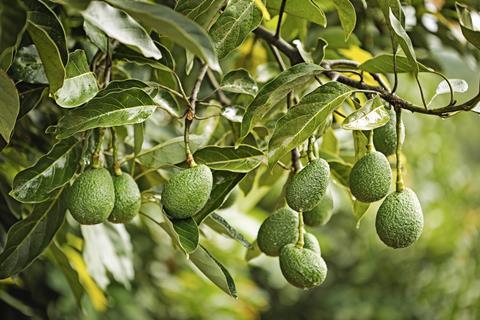The ‘genetic library’ hosts over 140 avocado varieties from around the world as researchers breed the varieties of the future, including novel shapes, jumbo sizes and different flavours
Avocado specialist and fruit supplier Westfalia Fruit is using AI and cutting-edge precision breeding technology to develop and preserve a world first ‘genetic library’ of avocado varieties.
Spread over 50 hectares at Tzaneen, South Africa, the dedicated orchard is home to up to three trees each of more than 140 avocado varieties from around the world, and forms the cornerstone of Westfalia’s ‘orchard of the future’.

The site is also the largest privately funded subtropical fruit research facility in the world, where Westfalia researchers are breeding the avocado varieties of the future using DNA markers and AI-driven analysis to finetune precision breeding.
“From our 140 ‘parent’ varieties that form the foundation of our breeding journey, we have raised more than 7,000 unique avocado seedlings - fondly referred to as ‘babies’ by the team - which we are actively evaluating,” said explained the company’s cultivar breeding lead, Sibongile Mhlope.
“Some are nearing the end of their evaluation, while others are just beginning,” he said.
Using technology such as AI enables scientists to select superior offspring without raising many thousands of seedlings, dramatically reducing development timelines that previously spanned decades.
Seedlings under development at the Westfalia trial site include fruits with novel shapes, sizes and flavours, some that resemble gourds or cucumbers, and others that are unusually sweet or large, even football-sized.
“We might one day create novel types such as, those with vibrant skin colours, unique and distinctive flavours, very large sized varieties; the possibilities are almost endless, creating choice for customers and consumers,” said Westfalia’s global brand manager, Matthew Churchill.
The project marks a new era for avocado varietal development, which is now being led by data and consumer insight. Westfalia said it is working closely with customers on varieties that are tailored to specific market preferences, reversing the traditional model of breeding first and marketing later.
“It’s about closing the gap between R&D and real-world needs to grow the market,” added Churchill.
In addition to a consumer focus, the programme is addressing global challenges such as climate change, disease pressure, and water scarcity.
“Our collection of parental cultivars is constantly growing, giving us access to an ever-expanding gene pool of desirable plant characteristics,” explained global head of R&D, Dan Sargent.
“Each year, we raise thousands of seedlings—every one of them closely monitored over time to determine optimal fruit quality, yield potential, and disease resistance, and from these, we have already selected almost 100 potential varieties of the future,” he said.
“This long-term assessment is essential to advancing varietal development and supporting the health, vibrancy, and resilience of the entire global avocado industry.”



